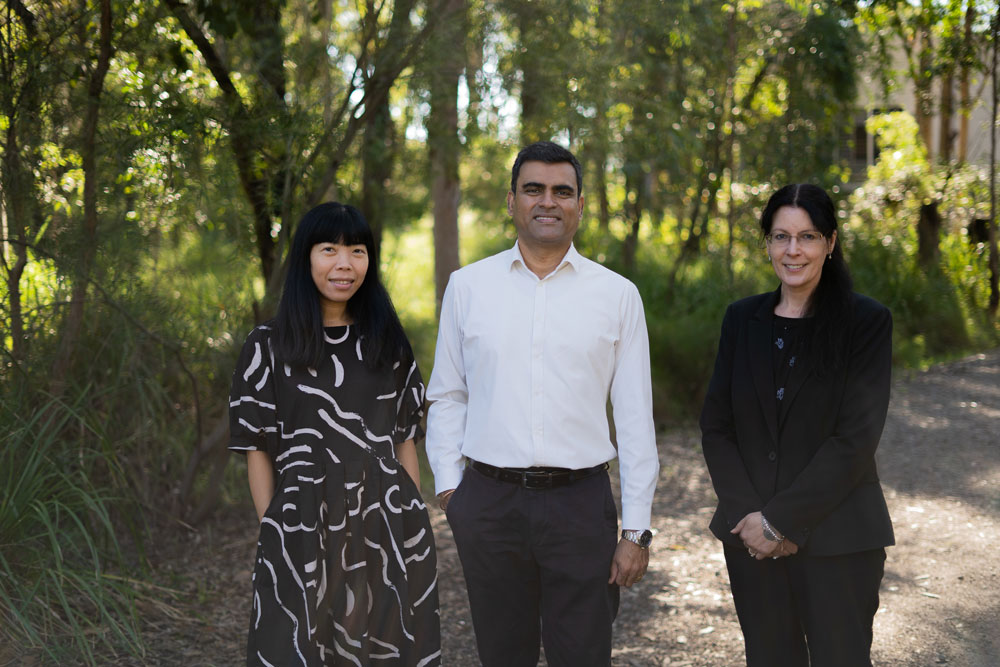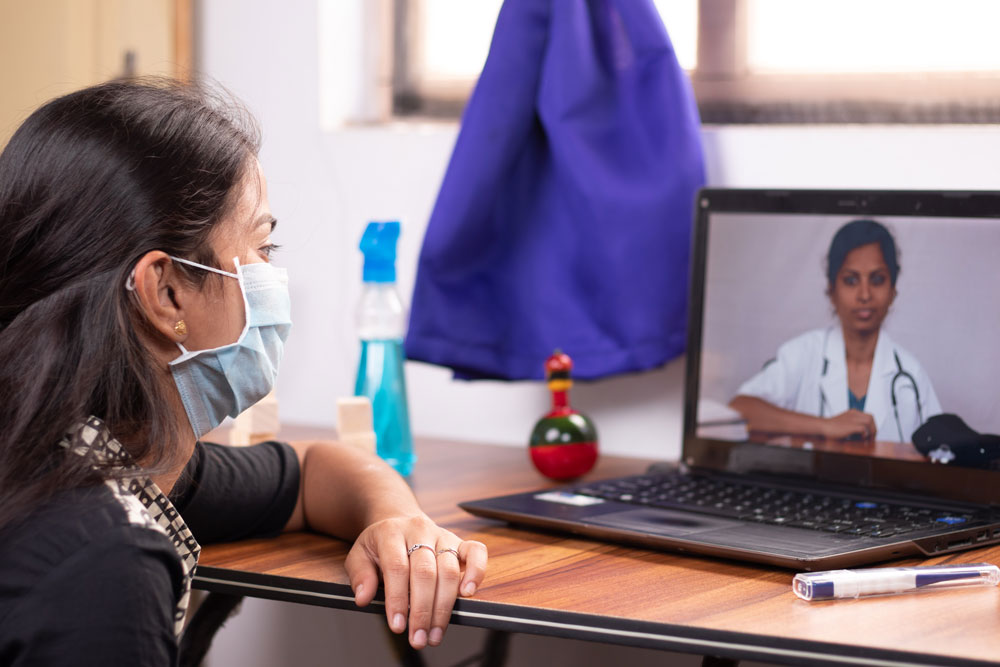Contents
- Fostering an Australian-Indian Zero-Carbon Building Construction Network
- Selecting chickpea cultivars for growth and symbiotic performance under drought
- How will climate change impact mango cultivars and their pollinators?
- VirtuCare: co‐designing disability‐inclusive virtual healthcare and rehabilitation in India
- Blue carbon sequestration supports climate adaptation in the Indian Ocean
- Australia‐India Mining Innovation Program
- A Novel Malaria Pathogen Detection System for Rural Communities
- Australia‐India space start-up exchange and trade tour
- Case Studies: Advocating Business Success Between Australia and India
Fostering an Australian-Indian Zero-Carbon Building Construction Network
Application ID: AIC-020-2021
Organisation: University of Newcastle
Australia-India Council Grant Offer: $49,500.00 incl GST
Total project value $201,028.00
Project description
The construction industry contributes around one-third of worldwide Greenhouse Gas (GHG) emissions, requiring a transformation of how buildings are designed, built and operated.
This project delivers three dialogues between academia, government, and industry to develop an action roadmap towards achieving zero-carbon buildings. The dialogues are informed by a position paper focused on: (1) Construction Market, Technology, and Industry Readiness, (2) Trade and Supply Network Challenges/Opportunities. (3) Behavioural and Cultural Issues, (4) Policy Challenges/Opportunities, and (5) Educational Capacity - Awareness, Capabilities and Skills.
Critical insights, collaboration priorities and actions will be published on a digital platform to facilitate knowledge sharing with the broader community. The policy directions will identify strategies for engaging in education and trade/business-based collaboration networks in zero-carbon construction between India and Australia.
Sector: Infrastructure, Education
AIC priority area: Climate Change
Key dates
| Event | Location | Dates |
|---|---|---|
|
Event 1A: Joint Dialogue - Driving the Zero Carbon Construction Strategy: Key Drivers and Opportunities |
Hybrid |
Oct 22 |
|
Event 2A: Joint Dialogue: Industry Partnerships for Mapping and Operationalising Zero Carbon Construction Networks |
Hybrid |
Nov 22 |
|
Event 3A: Joint Virtual Dialogue: Educational Partnerships for Curriculum Design. Event 3B: Exhibition of the cross-country student projects |
Hybrid |
Feb 23 |
Social media
- Individual staff and academics’ accounts
- Twitter: @Uni_Newcastle
Selecting chickpea cultivars for growth and symbiotic performance under drought
Application ID: AIC-039-2021
Organisation: Flinders University
Australia-India Council Grant Offer: $176,000.00 incl GST
Total project value $406,304.00
Project description
Chickpeas are an important pulse crop with global annual production of more than 14.2 million tonnes. Australia is the world’s largest exporter (650,000 tonnes annually).
Chickpeas are an excellent source of protein, minerals, vitamins, and health-promoting fatty acids, and their high protein content means they are an excellent alternative to animal-based foods.
This, together with their ability to form symbiosis with soil bacteria to utilise atmospheric nitrogen, make them an important part of sustainable agriculture. Chickpeas grow using stored soil moisture after the rainy season in India and NE Australia, or during the rainy season after spring or autumn sowing (Western and South Australia). In both situations, crops face terminal drought as seed filling occurs under increasing temperatures and decreasing soil moisture.
The focus of this project is to identify chickpea cultivars that are drought tolerant and fix nitrogen symbiotically, for sustainable yields in both Australia and India.
Sector: Agribusiness
AIC priority area: Climate Change
Key dates
| Event | Location | Dates |
|---|---|---|
| Workshop - Research team and researchers | Online, Flinders University | 15 Aug 22 |
| Seminar - Academics and students | Flinders University | 15 Sep 22 |
| Science Week - General Public | Adelaide | 19-21 Aug 22 |
Social media
- Website: Dr Sunita Ramesh, Flinders University
- Twitter: @rameshsunita39
- Twitter: @Flinders
How will climate change impact mango cultivars and their pollinators?
Application ID: AIC-054-2021
Organisation: Hawkesbury Institute for the Environment at Western Sydney University
Australia-India Council Grant Offer: $66,000 incl GST
Total project value $576,572.00
Project description
The project will aim to identify the climate and pollination needs of different mango varieties in India and Australia, enabling us to make industry recommendations on modifying planting regimes in response to changing climate.
The project will also determine which insect floral visitors are important for optimising crop yield in different regions, and how these species will respond to climate change. The project plans to compare the floral biology of mango varieties by measuring traits such as nectar volume/concentration and pollen nutrient profiles, and how these traits impact their pollination attractiveness and reliance.
In Australia, Hort Innovation has funded a local PhD position. In India, Western Sydney University has funded a joint PhD scholarship between our university and Tamil Nadu Agricultural University. AIC funding will be used to organise a series of yearly workshops in India and Australia over the three-year project period to promote coordination, collaboration, capacity building and industry development.
Sector: Agribusiness
AIC priority area: Climate Change
Key dates
| Event | Location | Dates |
|---|---|---|
| Workshop | Coimbatore, Tamil Nadu | 21-24 Oct 22 |
| Workshop and public engagement | Darwin and/or Sydney | 01-05 May 24 |
| Workshop | Coimbatore, Tamil Nadu | 01-05 May 25 |
Social media
- Twitter: @JamesMakinson
- Twitter: @westsyduhie
- Facebook: westsyduhie
- Youtube: Western Sydney University
- Instagram: westernsydneyu
VirtuCare: co‐designing disability‐inclusive virtual healthcare and rehabilitation in India
Application ID: AIC-079-2021
Organisation: Nossal Institute
Australia-India Council Grant Offer: $176,000.00 incl GST
Total project value $588,927.00
Project description
The VirtuCare project applies learnings from the role played by telehealth during the COVID-19 pandemic to inform the co-design, piloting and evaluation of inclusive virtual healthcare and rehabilitation services in India.
In the rapid expansion of telehealth over the past two years, the health and rehabilitation needs of people with disability who were often excluded. This project will produce a model of care to address these needs. In partnership with the technology industry, researchers and government agencies (DEPwD, eSanjeevani), the project will analyse effective models of disability-inclusive virtual rehabilitation, analyse new technology and policy innovation, co-design the VirtuCare model. The project will pilot and evaluate new innovations among community-based inclusive development workers (a current Government of India-Australia Initiative) and selected health and wellness centres.
Experts will then work with Industry partners to optimise the technology (software and hardware), and plan with existing government partners to expand the initiative to the national disability and health systems.
Sector: Health, Public Administration & Governance
AIC priority area: Critical Tech
Key dates
| Event | Location | Dates |
|---|---|---|
| Launch | Melbourne | 01 Aug 22 |
| Launch | India | 01 Sep 22 |
Social media
- Website: ni.unimelb.edu.au
- Twitter: @NossalInstitute
- Linkedin: Nossal Institute for global health
Blue carbon sequestration supports climate adaptation in the Indian Ocean
Application ID: AIC-094-2021
Organisation: University of Western Australia
Australia-India Council Grant Offer: $176,000.00 incl GST
Total Project Value $331,393.00
Project description
This project extends the COP26-announced US $15M Convex Blue Carbon Seascape (CBCS) project quantifying blue carbon seascapes of the Indian southern continental shelf and Australia’s northwest continental shelf.
It provides key information for India’s fisheries management to mitigate climate change and expand its marine conservation areas under its commitment to protect 30% of national waters by 2030.
The outcomes of the two components will inform climate-focused decision-making in India and Australia to support fisheries’ climate resilience and marine conservation. The project mirrors CBCS, providing international context, and includes mapping of fish biomass and fish catches on the continental shelves in India’s southern shelf and Australia’s northwest shelf.
Baited remote underwater video systems will be deployed to determine fish biomass and thus carbon storage. UWA’s strong collaboration with FishBase will generate the nutrient information required to determine carbon sequestration, and with SeaAroundUs to highlight existing carbon sources and extraction via spatially allocated fisheries catch data.
Sector: Agribusiness
AIC priority area: Climate Change
Key dates
| Event | Location | Dates |
|---|---|---|
| Community Event | Exmouth, WA | 01-31 Aug 22 |
| Community Event | Port Blair, South Andaman Island | 01-30 Nov 22 |
| Stakeholder Meeting | Perth, WA | 01-31 Mar 23 |
| Stakeholder Meeting | Bengaluru | 01-28 Feb 23 |
Social media
- Twitter: @uwanews
- Twitter: @meeuwiglab
Australia‐India Mining Innovation Program
Application ID: AIC-114-2021
Organisation: Austmine Limited
Australia-India Council Grant Offer: $55,000.00 incl GST
Total project value $79,860.00
Project description
The Australia-India Mining Innovation Program (AIMIP) will facilitate collaboration between Indian mining companies and Australian METS companies to solve critical technology challenges in relation to increasing Environmental, Social and Governance (ESG) expectations.
AIMIP will build relationships with Indian miners to address their major technical and operational challenges and connect them to innovative Australian METS companies to collectively deliver solutions or collaborate on adopting new technologies.
Virtual workshops and informative webinars will develop collaboration and open up dialogue around resolving operational challenges.
Selected METS companies will have the opportunity to visit India to better understand the operational context and further refine their solutions, while Indian miners will participate in the Austmine 2023 Mining Innovation Conference and related activities in Adelaide.
AIMIP consists of six mining challenges, online business and cultural training for Australian METS, a trade mission to India, and an Indian miner delegation at the Austmine 2023 Conference.
Sector: Resources and METS
AIC priority area: Critical Minerals, Critical Tech
Key dates
| Event | Location | Dates |
|---|---|---|
| IME - International Mining, Equipment Minerals & Metals Exhibition | Kolkata | 09-11 Jan 23 |
| Austmine 2023 | Adelaide | 09-11 May 23 |
A Novel Malaria Pathogen Detection System for Rural Communities
Application ID: AIC-116-2021
Organisation: University of Canberra
Australia-India Council Grant Offer: $99,000.00 incl GST
Total project value $187,421.66
Project description
Accurate and rapid diagnosis of malaria parasites before treatment is of utmost importance to reduce malaria mortality and morbidity. While microscopy remains the gold standard and rapid detection test (RDT) is the present mainstay of malaria diagnosis, in most large health clinics and hospitals the quality of microscopy is frequently inadequate, and the accuracy of RDTs is reportedly falling due to specific parasite antigenic genes mutations.
The detection is cumbersome in specifically remote and rural areas, which can impede the diagnosis and treatment. Delay in receiving treatment for uncomplicated malaria is often reported to increase the risk of developing severe malaria, but access to treatment remains low in most rural areas, where the burden of disease is high.
The objective of this project is to develop an innovative cyber-critical technology framework for early malaria pathogen detection. The proposed translational technology solution can be useful for other diseases and regions globally.
Sector: Health
AIC priority area: Critical & Cyber Technology
Key dates
| Event | Location | Dates |
|---|---|---|
| Virtual Webinar | Hybrid | 12-19 Dec 22 |
| Technology Showcase at AusMedTech | Australia | 15-19 Jan 24 |
| Technology Showcase at Medical Expo | India | 10-14 Jun 24 |
Social media
- Twitter: @gchetty
- LinkedIn: Girija Chetty
- Facebook: Girija Chetty
- Website: Girija Chetty
Australia‐India space start-up exchange and trade visit
Application ID: AIC-118-2021
Organisation: University of South Australia
Australia-India Council Grant Offer: $49,500.00 incl GST
Total project value $74,653.00
Project description
The Australia-India space start-up exchange and trade visit will connect deep technology space companies and their respective research, industry and investment networks for the purpose of collaborating on critical technologies to fast-track market entry and increase investment opportunities.
Through a series of online exchanges, technology demonstrations and a trade visit, the project provides a mechanism to develop mutually beneficial relationships between emerging deep tech companies supported by the two countries.
Through the program of exchange, Indian start-up companies can connect and have access to critical areas of emerging Australian technology and exchange technical and business expertise. Australian start-up companies will be exposed to technical expertise and research through a number of accelerators and incubators as well as university-supported industry parks, enhancing their networks and increasing their ability to trade and potentially seek investment from the fast-growing investment community in India.
Sector: Science, Tech & Innovation
AIC priority area: Critical & Cyber Technology
Key dates
| Event | Location | Dates |
|---|---|---|
| Monthly exchange forum for selected startups to connect with Indian based startups | Adelaide and various cities in India | Nov 22 - Apr 23 |
| Ten-day startup delegation event | Adelaide, Hyderabad, Bengaluru and Trivandrum | 23 Apr - 04 May 23 |
| Australian Space startup demonstration event | Chennai and Bengaluru | Jun 23 |
Social media
- Twitter: @ICCUniSA
- Website: The Innovation & Collaboration Centre (ICC)
- LinkedIn: Innovation & Collaboration Centre
Case Studies: Advocating Business Success Between Australia and India
Application ID: AIC-134-2021
Organisation: Newland Global Group
Australia-India Council Grant Offer: $88,000 incl GST
Total project value $160,000.00
Project description
The project aims to address the knowledge gap that currently persists in both markets on existing business successes.
There is little awareness of Australian companies that are doing well in India, and of Indian companies doing well in Australia. The project, through its case studies, will capture business wins in priority sectors of engagement that would create cultural and business reference points for attitudes to shift and trust to be built.
These case studies will expose companies to real business experiences, opportunities, dilemmas, and decisions. It will educate companies to consider the broader organisational, industry and societal context, cultivating the capacity for critical analysis, judgment, decision-making, and action. The aim of this project is to encourage corporate Australia and India to engage at a more proactive level, providing them with a framework of established business wins across diverse sectors supplemented with lessons learned and recommendations.
Sector: All sectors
AIC priority areas: Economic Cooperation, Innovation and Entrepreneurship
Key dates
| Event | Location | Dates |
|---|---|---|
| Launch of report | Australia | 01 Feb-29 Jun 23 |
| Launch of report | India | 01 Feb-29 Jun 23 |
Social media
- Twitter: @NewlandGlobal
- Twitter: @natashajha
- Twitter: @DipenRughani
- LinkedIn: Newland Global Group










